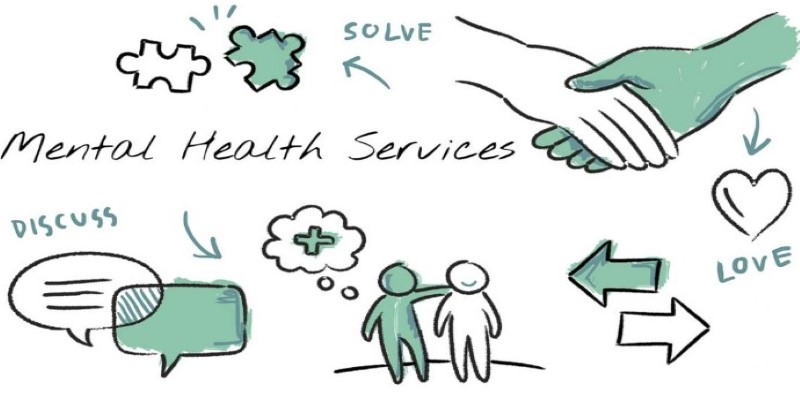Mental health is key to overall well-being, but many wonder if Medicare covers therapy, hospital stays, and medications. Medicare provides options for both outpatient and inpatient mental health services, including therapy sessions, evaluations, and medication management. However, coverage varies depending on the type of care, with some limitations, like lifetime caps on psychiatric hospital stays and cost-sharing requirements for outpatient visits.

This article outlines Medicare's support for mental health needs, detailing what services are covered and the associated costs. It helps beneficiaries better understand the support available and any financial responsibilities they may encounter.
Medicare covers a wide range of mental health services under both inpatient and outpatient services, though the nature of coverage varies with the service.
Medicare Part B covers most outpatient mental health needs. Such services include therapy with licensed professionals, counseling, and diagnostic services. If a psychologist, social worker, or psychiatric nurse practitioner accepts Medicare, Medicare Part B pays for treatment. That includes individual and group therapy, psychiatric evaluation, and developing a treatment plan. The part also consists of diagnostic services, which are essential to gaining a thorough understanding of the beneficiary's mental health needs.

Some of the costs for outpatient visits include direct charges for their services, as well as 80% coverage from Medicare when a Part B deductible has been met, with a 20% liability. If there is secondary coverage, the charge may come out of this plan or out-of-pocket.
Medicare Part A covers inpatient mental health care, such as hospital stays in psychiatric facilities. This coverage is crucial for those needing more intensive support, which may include conditions requiring close monitoring or stabilization. Inpatient services are available at general hospitals or psychiatric hospitals; however, Medicare only covers up to 190 days of inpatient psychiatric hospital care in a lifetime, regardless of the facility.
If you are admitted to a hospital for mental health care, Medicare Part A covers the stay after you meet the deductible. From days 1-60, the beneficiary pays nothing, but coinsurance applies from days 61-90, and additional costs come into play if hospitalization extends beyond this period. If you require care beyond 190 days, Medicare will no longer cover inpatient psychiatric hospital services, though care at a general hospital may still be covered.
For individuals who require more than occasional outpatient care but not full-time inpatient treatment, Medicare provides partial coverage through a Partial Hospitalization Program (PHP). PHPs are structured programs that allow individuals to receive intensive therapy and treatment without staying overnight. Medicare Part B may cover PHPs at community mental health centers and hospital outpatient departments. These programs usually involve therapy, medication management, and structured day treatment, which can be a valuable middle-ground option for many individuals.
Medicare Part B requires beneficiaries to pay 20% of the program's cost once the deductible is met, and copayments may also apply. Some services within PHPs, such as meals and transportation, may not be covered.
Prescription medications are an essential component of treatment for many mental health conditions. Medicare Part D, which covers prescription drugs, helps pay for a variety of mental health medications, including antidepressants, antipsychotics, and anti-anxiety drugs. However, the availability of these medications depends on the specific plan's formulary or list of covered drugs.
Each Medicare Part D plan has a unique formulary, so beneficiaries may need to review their plan's details to ensure their prescriptions are covered. Even if covered, medications are subject to copayments or coinsurance, and individuals may face different costs depending on the medication tier under which their prescriptions fall.
Medicare does cover many mental health services, but beneficiaries are still responsible for certain costs. Understanding these out-of-pocket expenses can help individuals prepare and avoid unexpected financial burdens.
Deductibles and Coinsurance: Beneficiaries must meet the Part A and Part B deductibles before Medicare begins covering the cost of services. Once the deductible is met, Part B covers 80% of outpatient mental health services, and beneficiaries pay the remaining 20%.
Copayments for Inpatient Care: For hospital stays, beneficiaries have different financial responsibilities depending on the length of their stay, including daily copayments if the stay extends beyond 60 days.

Prescription Costs: Medicare Part D plans often have various costs associated with medications, including monthly premiums, annual deductibles, and cost-sharing based on medication tiers.
Additional insurance options like Medigap or Medicare Advantage plans may help offset some of these costs. Medicare Advantage plans, in particular, offer expanded coverage beyond Original Medicare, though specific benefits and coverage vary by plan.
While Medicare covers various mental health services, there are some limitations to be aware of:
190-Day Cap for Psychiatric Hospital Care: Medicare limits coverage to 190 days for inpatient psychiatric hospital care over a lifetime. This cap does not apply to general hospitals, so once exceeded, beneficiaries may need to find alternative options or cover costs themselves.
Restrictions on Long-Term Therapy: Medicare typically covers only short-term therapy. Coverage for ongoing therapy is limited, though cases may qualify for extended care based on medical necessity.
Part D Prescription Coverage Limits: Not all mental health medications are covered under each Part D plan, as coverage depends on the plans formulary. Checking the formulary before enrolling can help avoid coverage issues.
Pre-Authorization for Certain Services: Some mental health services, particularly under Medicare Advantage, require pre-authorization. Beneficiaries may need prior approval from their plan provider before applying for coverage.
Medicares mental health coverage offers valuable support for essential services, but beneficiaries need to be mindful of costs like deductibles, copayments, and coinsurance. With limitations such as the 190-day lifetime cap for psychiatric hospitals and partial coverage for Partial Hospitalization Programs (PHPs), understanding the fine details of coverage is crucial. Medicare counselors and health coverage advisors can provide guidance to optimize benefits and manage expenses. With the right planning, beneficiaries can access necessary mental health care while keeping financial responsibilities in check, ensuring that mental well-being remains a priority without overwhelming costs.

By Vicky Louisa/Oct 10, 2024

By Gabrielle Bennett /May 27, 2025

By Eleanor/May 11, 2024

By Frederica/Nov 06, 2024

By Eleanor/Nov 06, 2024

By Vicky Louisa/May 22, 2025

By Alice Ellis/Apr 23, 2024

By Noah Jones/Apr 28, 2025

By Susan Kelly/Apr 30, 2024

By Vicky Louisa/Apr 02, 2025

By Verna Wesley/Mar 17, 2025

By Eleanor/Apr 19, 2024